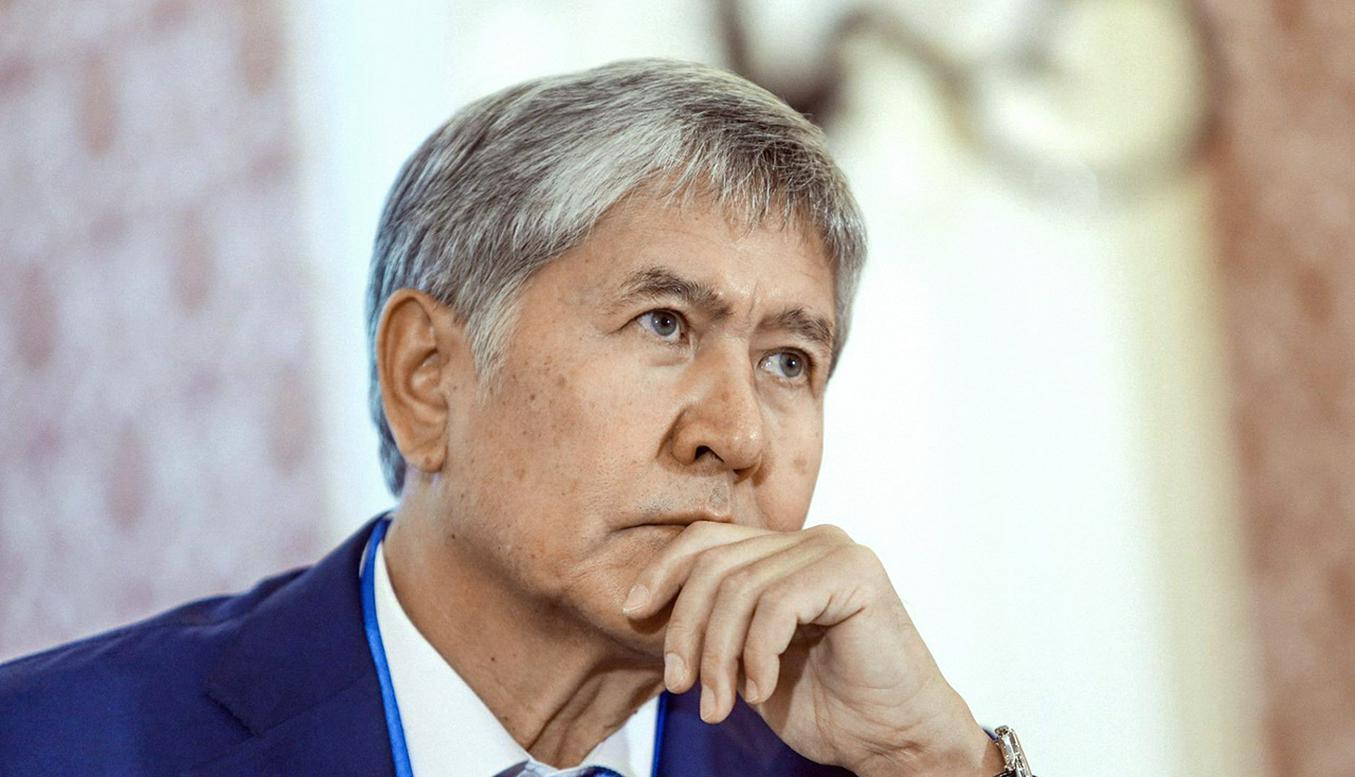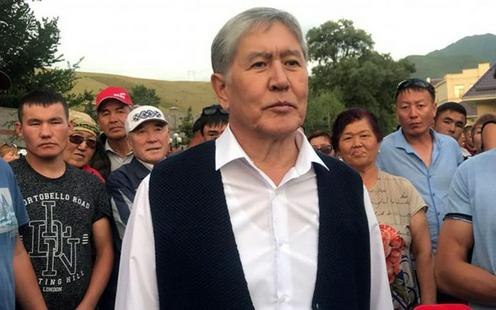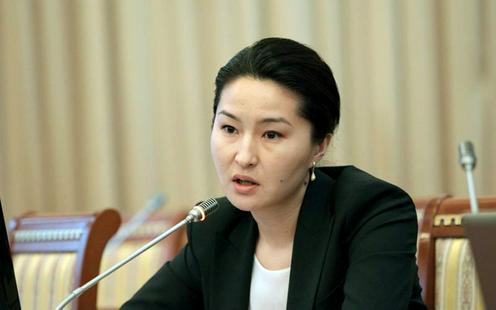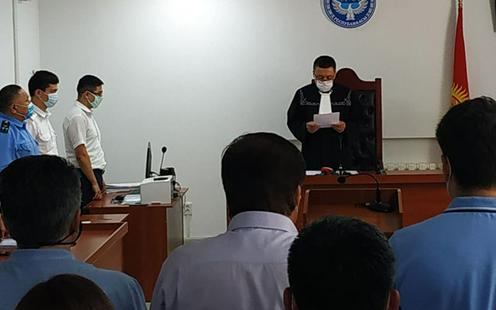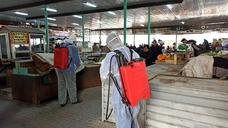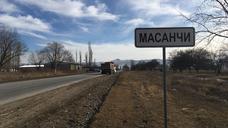On 23 June, the Pervomayskiy District Court in Bishkek passed sentence on Kyrgyzstan’s former president Almazbek Atambaev. He was pronounced guilty of the unlawful early release from prison of crime boss Aziz Batukaev and sentenced to 11 years and two months in jail, as well as having his property confiscated and being stripped of his state awards. All of the other defendants in the case were released. Atambaev thus becomes the first Kyrgyz president to be put behind bars. His two predecessors were overthrown by revolutions and fled the country.
A dangerous job
Atambaev rose to the presidency following Kyrgyzstan’s second revolution. The country’s first leader, Askar Akaev, having been overthrown in 2005, was by then already living in Russia, and following the 2010 revolution, second president Kurmanbek Bakiev fled to Belarus. A court later sentenced Bakiev in absentia to a lengthy term in jail, but Belarus granted him political asylum. Atambaev was the founder of the Social Democratic Party of Kyrgyzstan (SDPK) which took an active part in the events of 2010. After Bakiev’s overthrow, SDPK member Roza Otunbaeva briefly served as interim president, and in the 2011 elections it was Atambaev who emerged victorious.
Having likely learned from the experiences of his predecessors, Atambaev did not try to cling to power beyond his statutory term. At the end of 2017, he left the office of president, which Kyrgyzstan’s new constitution allowed him to occupy only for one six-year period during his whole life. He did, however, attempt to pull off what might be called an “Operation Successor” (Translator’s note: the reference is to the search for a successor to Boris Yeltsin at the end of the 1990s in Russia, which brought Vladimir Putin to power with a promise to protect Yeltsin and his associates): Sooronbay Jeenbekov was elected president, having run under the banner of the SDPK and received the active support of Atambaev’s associates. It may be that Atambaev sought to become the “grey cardinal” of Kyrgyz politics, but as later became known, this plan fell apart literally in the very first days after the inauguration of the new head of state. Jeenbekov met then-president of Kazakhstan Nursultan Nazarbaev and settled a conflict that had previously arisen between Atambaev and the Elbasy. The ex-president did not appreciate such a show of independence.
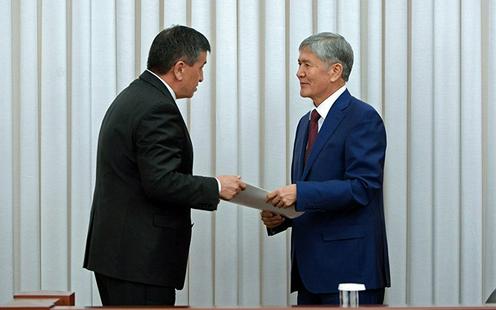 Sooronbay Jeenbekov and Almazbek Atambaev. Archive photo from the Press Office of the President of Kyrgyzstan
Sooronbay Jeenbekov and Almazbek Atambaev. Archive photo from the Press Office of the President of Kyrgyzstan
Already by the start of 2018, the rift between Atambaev and Jeenbekov was being talked about in the corridors of power, and by 2019 the ex-president had come out in open opposition. As a result, the SDPK split into two parts – one remained loyal to Atambaev, while another group re-registered the party under the leadership of little-known politician Sagynbek Abdyrakhmanov. Atambaev swiftly stepped down as leader of his part of the party. According to commentators, he did this in the hope of avoiding being stripped of his immunity from prosecution, a possibility that was then being widely discussed. It just so happens that a law adopted “under Atambaev” allows for a former president to be shorn of his immunity only in the event that he remains active in politics. Atambaev likely calculated that if he formally left the position of party leader then the process against him would grind to a halt.
In practice, however, no one was paying any attention to Atambaev’s formal status. In June 2019, his immunity was removed and he started to receive summons to give testimony in the recently-reopened case relating to the illegal release of “thief in law” (crime boss) Aziz Batukaev. In 2013, the ethnic-Chechen Batukaev was released early from prison in Kyrgyzstan and immediately hopped on a plane to Chechnya, never to return. He had been set free on the grounds that he was suffering from a terminal illness, but it quickly became clear that the medical documents in question had been forged. To this day, Batukaev remains alive and well and has managed to evade all attempts to extradite him back to Kyrgyzstan. Investigations into the affair back in 2013 were quickly laid to rest. Yet now investigators had suddenly decided to reopen the case – and above all to bring the former president in for questioning.
The recluse of Koy-Tash
Atambaev categorically refused to show up for questioning. He argued that the case was politically motivated and declared that he had no intention of cooperating with the investigation. From June 2019, the ex-president was almost permanently holed up at his residential compound in the village of Koy-Tash not far from Bishkek, surrounded by his associates. The only brief exception seems to have been a flight from the air base at Kant to Russia, where he was given an audience with Vladimir Putin. Putin, however, politely made it clear that he was not prepared to intervene in Kyrgyzstan’s internal affairs. The Kyrgyz public assumed that Atambaev would follow the well-trodden path of Akaev, Bakiev and, for that matter, Batukaev and had little expectation that he would return. Atambaev surprised everyone, however, by flying home precisely on schedule and renewing his seclusion in Koy-Tash.
It was clear from the start that arresting the former president could turn out to be a tricky business. His supporters were clearly not preparing to just politely step aside for law enforcement and wave their leader off into detention. And in a country that has already gone through two revolutions in the last 15 years, any local rebellion can quickly grow into something bigger. Nevertheless, in August Kyrgyz special forces decided on a raid. The clashes lasted for two days and resulted in the death of one special forces officer. A third revolution, though, was avoided. Atambaev was carried off into custody, and it was only after this that he went from being a witness to being a defendant in the Batukaev case, as well as in relation to the clashes in Koy-Tash and a whole series of other cases.
In the autumn, the Batukaev case was sent to court. But even in detention Atambaev continued to put up resistance and refused to cooperate with court proceedings. When he point-blank refused to attend court sessions, the Kyrgyz authorities flinched at applying force to such a formerly highly placed figure of power. At some point the court sessions were transferred to the detention facility itself, but even then the ex-president managed to simply walk out of the office where proceedings were being held.
At the end of 2019, the case relating to the clashes at Koy-Tash also reached court. Atambaev declared that he was willing to attend court sessions in this particular case. He explained that he had had no choice but to stand shoulder to shoulder with those who tried to protect him from arrest. But at a session at the start of June this year, the ex-president refused to sit behind the glass enclosure that serves as the dock – in “the cage”, as it is known. The judge consequently banned him from attending proceedings until the verdict is delivered.
One answers for all
And then, earlier this week, the Pervomayskiy District Court pronounced its verdict in the Batukaev case. By that point only four of the original 19 defendants remained in the dock: Atambaev, former prosecutor-general Indira Joldubaeva, former advisor to the head of the State Penitentiary Service Kalybek Kachkynaliev and director of the National Haematological Centre Abdukhalim Raimjanov. By some reports, the remaining 15 defendants cut a deal with the prosecution and are to be tried separately and given penalties no more serious than a fine. By other reports, only 13 of the accused figure in the deal. One other, ex-head of the State Committee for National Security Busurmankul Tabaldiev, is still being sought by police. What has happened to the final member of the 19 in this version remains unknown.
Of the four defendants who refuse to subscribe to the prosecution’s version of events, only Atambaev has been handed a jail term – 11 years and two months. Joldubaeva was given a fine of 5 million soms ($66,700). Kachkynaliev was sentenced to two years in prison, but since each day in pre-trial detention counts as two days of time served, his sentence is considered fully served. Raimjanov was also found guilty but exempted from punishment under the statute of limitations.
Besides the lengthy imprisonment, Atambaev is to be stripped of all four of his state awards and have his property confiscated – which includes five cars, the contents of numerous bank accounts and safe deposit boxes and his real estate (including land in the now-infamous Koy-Tash), as well a number of commercial enterprises: the OJSC (open joint-stock company) Media Forum, the research and production company Forum, the limited liability companies April TV, April and Kanal Di, and the industry association Kyrgyzavtomash. Both of the ex-president’s lawyers, Sergei Slesarev and Zamir Jooshev, stated that they consider the sentence to be unjust and the charges against him unsubstantiated. Whether Atambaev will appeal the ruling is as yet unknown. On this issue the two lawyers plan to consult their client, who turned down the chance to make a closing statement in court.
The reaction
The first person to comment on the sentence was the former president’s wife, Raisa Atambaeva. Her statement was posted on the Facebook pages of both of Atambaev’s two sons – Kadyr and Seid, who recently founded a new party as a refuge for part of the membership of the still-disintegrating SDPK. Raisa Atambaeva wrote:
Dear fellow Kyrgyz! I want to thank you all from the bottom of my heart for your constant support, faith and sympathy. Today, for the first time in many years, I was forced to mark my birthday without Almazbek Sharshenovich.
Since this morning I have received the greetings of hundreds of people, including the leaders of foreign nations and members of their families, in front of whom I am merely embarrassed for Sooronbay Jeenbekov, to whom we have shown nothing but kindness over the past 30 years and treated as one of the family.
By way of a thank you for all this, Sooronbay Jeenbekov, who used to be the first person who would call and wish me a happy birthday, has today, right on my birthday, forced judges to pronounce a verdict against my husband.
Sooronbay Sharipovich, our former friend, I would like to meet you one more time, look you in the eyes and personally say thank you for such a “gift”.
It is worth pointing out that on 23 June Jeenbekov was in Russia – invited by Putin for the Victory Day Parade that was to take place the following day. Probably the timing of the verdict was more related to this fact than to a specific desire on the part of Jeenbekov to spite the former first lady. The current president is generally trying to distance himself from everything related to the Atambaev trials, the collapse of the SDPK and the approaching parliamentary elections this autumn – which it seems will be held without any clear candidate for the role of ruling party.
Fergana asked political analyst Arkadiy Dubnov to comment on the sentence against Atambaev. He had the following to say: “Former president Atambaev certainly bears responsibility for the illegal release of Batukaev since, as head of state, he must have been aware, perhaps not of everything, but of a significant amount of the circumstances surrounding this release. But in my view the sentence passed against him cannot be seen as justified, at least if we compare it to the punishments handed out to the other defendants in the case. For this reason it is not unlikely that Atambaev’s supporters, and even simply those who do not consider this sentence absolutely fair, may turn the former president into some kind of political martyr. I would not even rule out that it is precisely this that the former president was counting on when he decided to snub the court proceedings and refused to take any part in them. And finally – of course, this unprecedentedly harsh sentence meted out to a former head of state will once again make CIS region countries and beyond turn their attention to Kyrgyzstan, where the movement to democratic procedures is proceeding on such a crooked path. Kyrgyzstan’s democratic credentials appear to be significantly dented, since three of the country’s four presidents are considered inside the country as criminals.”
In turn, former Constitutional Court judge Klara Sooronkulova, in her comments to Fergana, pointed out that it is hard to say much about the sentence against Atambaev since the trial was conducted behind closed doors. “Even though there was absolutely nothing that needed to be kept behind closed doors,” she stressed. “It had nothing to do with any state secrets or any themes connected to state secrets. But the simple fact that the trial was a closed one says a lot. This in itself is grounds to suspect that the trial was politicised. It is unequivocally clear that the trial took on a political hue. Even though it was conducted behind closed doors, information leaked out. There were many defendants in the case, but in the end only four people were sentenced. Among the accused were of course former deputy prime minister Shamil Atakhanov, judge Japar Ermatov and others... And cutting a deal in the Kyrgyz context is simply providing false testimony. They have probably long been released, their cases dealt with separately and in a simplified format. I don’t know where Atakhanov and the other defendants are right now but probably they have been given conditional sentences or fines and been set free. Sooner or later all this will become clear.”
Sooronkulova added that she does not insist on Atambaev’s innocence, but charges cannot be based simply on the testimony of fellow defendants who choose to cooperate with the prosecution. Whether prosecutors had any other evidence is not currently known. The former judge concludes: “My feeling is that a lot of things were falsified, the case was politicised and the punishment is disproportionate. His guilt can hardly be said to have been demonstrated, though of course Atambaev played a key role in Batukaev’s release. He’s been given a very serious sentence. Even Joldubaeva, who directly carried out his instructions, gave testimony to prosecutors and judges and got off with a fine. Atambaev expressed his wishes, and they were then carried out by other people, who should be facing more severe punishment. But they got off much lighter. This is the most worrying thing, because those in the middle of the command chain always walk away unpunished.”
It should, of course, be remembered that the Batukaev affair is merely the first of the cases filed against Atambaev. In the coming months his jail term is only likely to increase, with no prospect of a speedy release and still less of a return to politics. On the other hand, as the fate of Batukaev himself demonstrates, in Kyrgyzstan it is rarely possible to predict anything for sure.
Tatyana Zverintseva
Translated by Nick L.
-
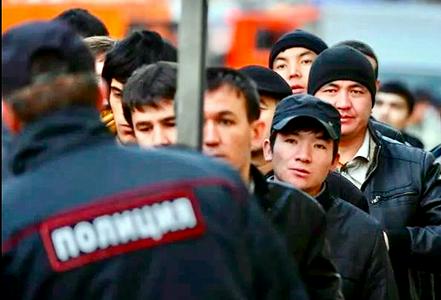 16 October16.10Digital Oversight and Targeted RecruitmentRussia Approves New Migration Policy for 2026–2030
16 October16.10Digital Oversight and Targeted RecruitmentRussia Approves New Migration Policy for 2026–2030 -
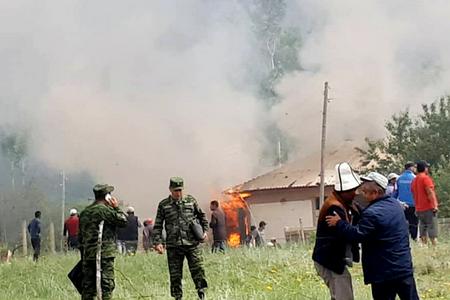 02 June02.06VideoFire and stone hailViolent clashes break out on the Uzbek-Kyrgyz border
02 June02.06VideoFire and stone hailViolent clashes break out on the Uzbek-Kyrgyz border -
 29 May29.05A Great CrusadeKyrgyz deputies mobilise against anti-corruption group Chong Kazat’s rhetoric
29 May29.05A Great CrusadeKyrgyz deputies mobilise against anti-corruption group Chong Kazat’s rhetoric -
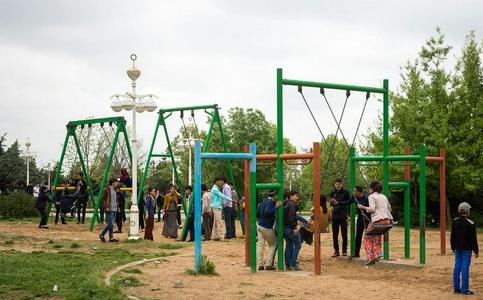 23 April23.04Viral doubtIs Turkmenistan really free of the coronavirus?
23 April23.04Viral doubtIs Turkmenistan really free of the coronavirus? -
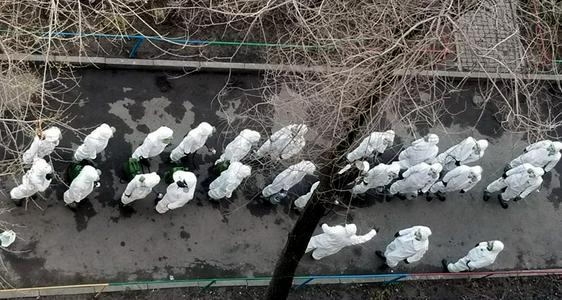 01 April01.04Central Asia in lockdownIt’s been a busy week in COVID-19’s Central Asia. Here’s a quick summary
01 April01.04Central Asia in lockdownIt’s been a busy week in COVID-19’s Central Asia. Here’s a quick summary -
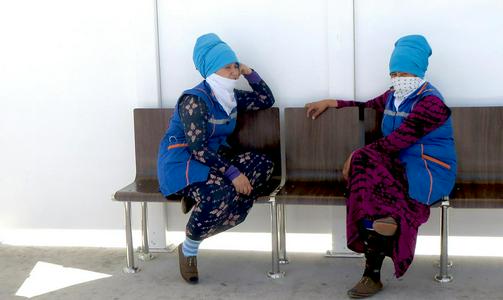 26 March26.03Lung X-rays for travel, herbal fumes and a healthy dose of silenceHow Turkmenistan is fighting an officially non-existent epidemic
26 March26.03Lung X-rays for travel, herbal fumes and a healthy dose of silenceHow Turkmenistan is fighting an officially non-existent epidemic
